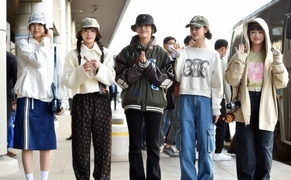 |
| A significant number of lawmakers were absent during a plenary session held to ask questions to the government in the fields of politics, diplomacy, unification, and security, on June 22, 2021./ Source: Yonhap |
AsiaToday reporters Joo Sung-sik
The 21st National Assembly, which was launched in an unprecedented structure of the ruling Democratic Party winning the majority of seats, was found to be insufficient to meet the public expectations. Its average review time for each bill was only 5 minutes and 14 seconds, its approval rate of lawmakers’ bill was 17.6 percent, and the attendance rate of plenary session stood at 74.13 percent.
In the face of the Seoul and Busan mayoral by-elections and the process towards the 20th presidential election, it was embroiled in political conflicts rather than policy confrontation, neglecting its main task of proposing and reviewing bills. During plenary sessions and standing committees, lawmakers only checked their attendance and did not keep their seats.
According to the results of the 21st National Assembly inspection released by the legal consumer federation, The Good Law, on Sunday, it only took 5 minutes and 14 seconds in average to review a bill proposed to the bill subcommittee of the 27 standing committees from May 30, 2020 to May 29, 2021. An average of 34.26 bills were submitted to the standing committee during the same period.
Another characteristic that can be seen in the first year of the 21st National Assembly is that the work of the second sub-committee for bill review under the Legislative and Judiciary Committee, which examines other standing committee bills, has drastically decreased. According to the federation, the sub-committee held two meetings, once in February in March of this year, reviewing only four bills each. This contrasted with the 20th National Assembly, which held 6 meetings in the fourth year to review dozens of bills.
Legislative proposals, which is one of the main task of the assembly, were also sluggish. Over the past year, there were 9,882 bills proposed by incumbent lawmakers, but 1,716 bills were passed except for the chairperson’s bills that were completely passed. The average approval rate of representative bills of lawmakers stood at only 17.6 percent. This is much lower than the approval rate of 48.5 percent of government bills that were handled during the same period.
The average presence rate of lawmakers for the plenary sessions, which was held 149 times, stood at 74.13 percent. On the other hand, the attendance rate of the plenary session stood at 94.66 percent. This indicates that many lawmakers entered the plenary session hall and left immediately after checking attendance.
“As of 12:46 pm, the list of lawmakers who listen to the free speech of fellow lawmakers until the end will be left in the stenographic record so that residents can remember the lawmakers who are exemplarily active in parliamentary politics,” said National Assembly Speaker Park Byung-seok at the end of a plenary session held on June 21.
“Attending and keeping a seat at a plenary session is the basic duty of a member of the National Assembly to fulfill the four responsibilities of legislation, fiscal control, and government checks. Theefore, effective measures are required to enhance it,” said Kim Dae-in, the head of the federation.
#21st National Assembly
Copyright by Asiatoday
Most Read
-
1
-
2
-
3
-
4
-
5
-
6
-
7





















